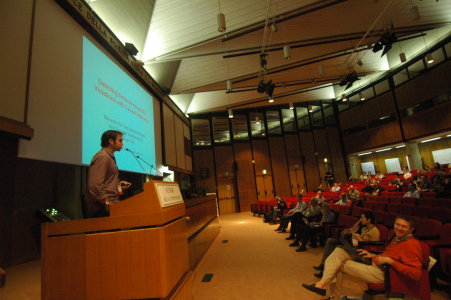Welcome
The GTNoise lab focuses on developing new algorithms, protocols, and systems for the current and next-generation Internet, with a specific focus on network operations and security.
Our work ranges from fighting the Internet's cybercriminals (spam, phishing, etc.) to improving Internet availability to making networks easier to diagnose and operate. Please click on the projects page to find out more.
The lab has eleven Ph.D. students and one postdoc. We also host occasional visitors from universities around the world (most recently from Italy and India). Please contact Professor Nick Feamster if you are interested in opportunities in the lab.
Please also consider taking CS 6250 (Computer Networking) in Fall 2010, a project-based course that will have many new elements.









